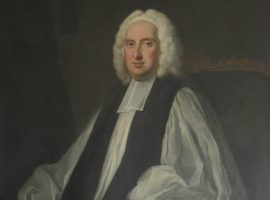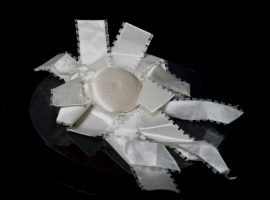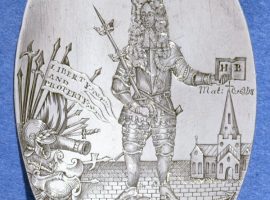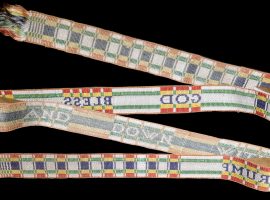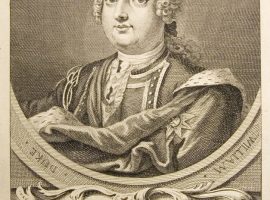Jacobites
Viscount and Anne Fairfax remained loyal to the Catholic faith during a period of religious and political turmoil. Supporters of the Catholic King James II and his descendants fought a bloody campaign to return a Stuart king to the throne which fostered a climate of suspicion of Catholicism and its adherents in Britain. Delve into these articles to learn more about the Jacobite cause and its eventual defeat.
York & The Jacobite Rebellions
In the autumn of 1745 the city of York faced the threat of Jacobite attack, as Bonnie Prince Charlie’s invading army crossed the Scottish border. With its long historical memory of invasion, York readied itself to face this new danger.

In the Name of the Rose
The White Rose is perhaps the most evocative and powerful of Jacobite symbols, a significance it retains even today. Wearing the White Rose or displaying it on personal possessions signified complete dedication to the Stuart cause, even unto death.

Decoding the Jacobites: A Private Language
Jacobite allegiances could not be stated openly: language had to be used carefully, with powerfully subversive messages concealed and encoded into symbols and images, slogans and mottoes, ciphers and acronyms.

The Jacobite Rebellions: Symbolism & Allegiance
In the decades following the Jacobite rebellions of 1715 and 1745, fear and suspicion was rife. Heavy penalties were imposed for sedition; Jacobites were forced to communicate allegiances covertly in a way understood only by those who shared their sympathies.

The secret world of the Jacobites
In an atmosphere of fear, suspicion and treachery, it was necessary for Jacobites to live in a secret world in which messages of allegiance, whether spoken or expressed through objects, had to be obscured and concealed.

Cumberland: Hanoverian Hero & Butcher Duke
A figurehead of the Hanoverian monarchy and loyalist supporters, The Duke of Cumberland was conversely depicted with deep loathing and hostility in Jacobite propaganda as a brutish tyrant, and nicknamed ‘The Butcher’ after his bloody victory at Culloden.

